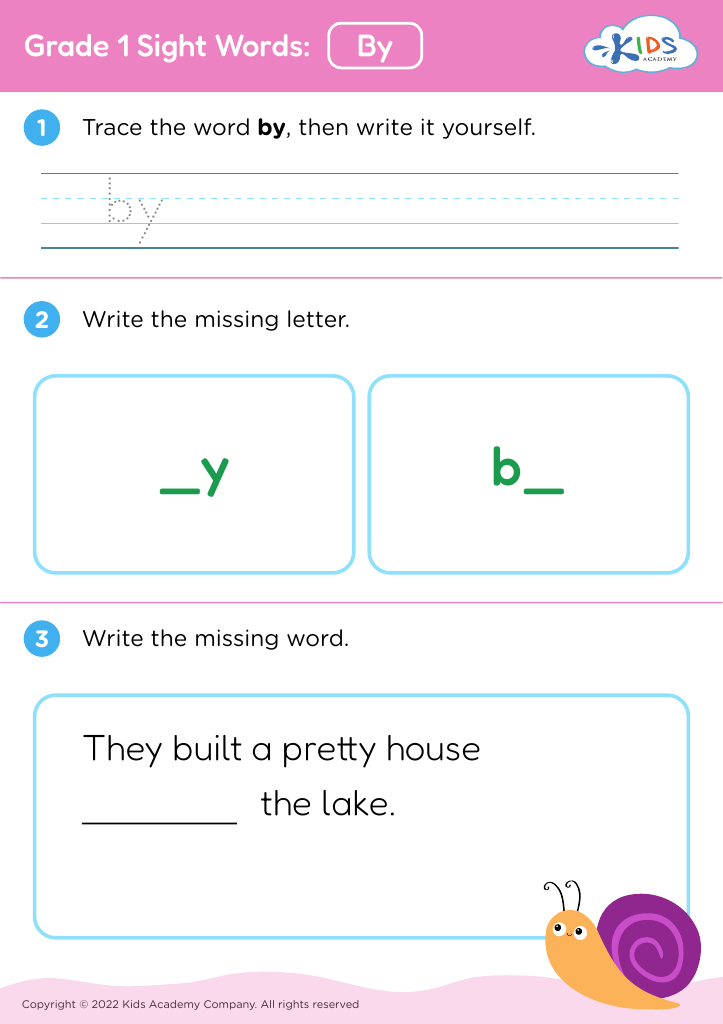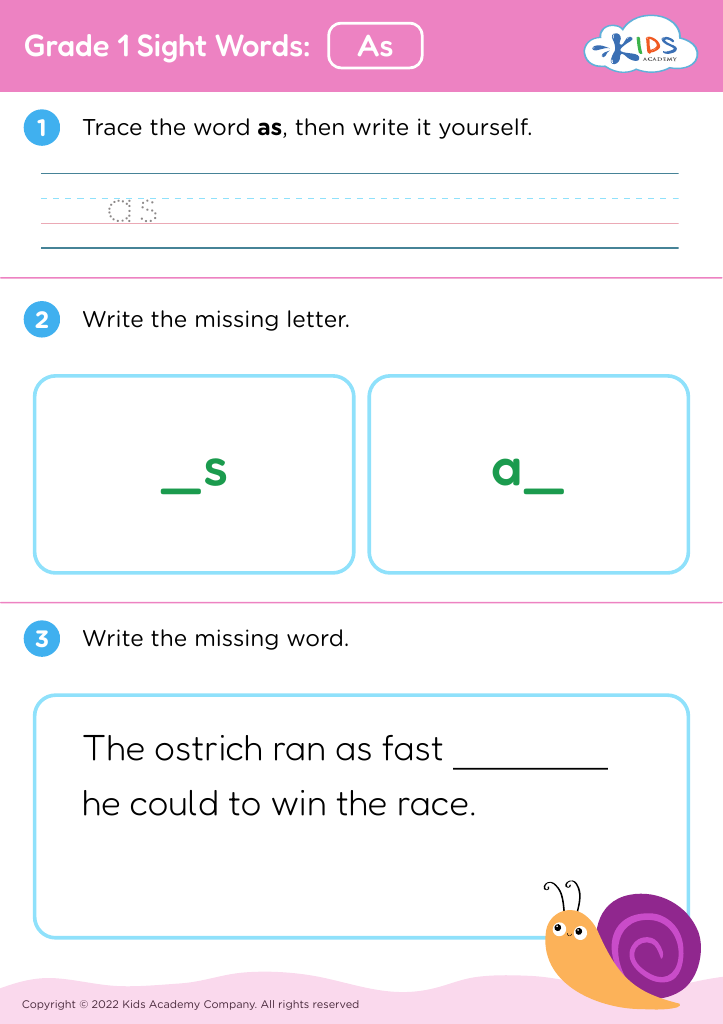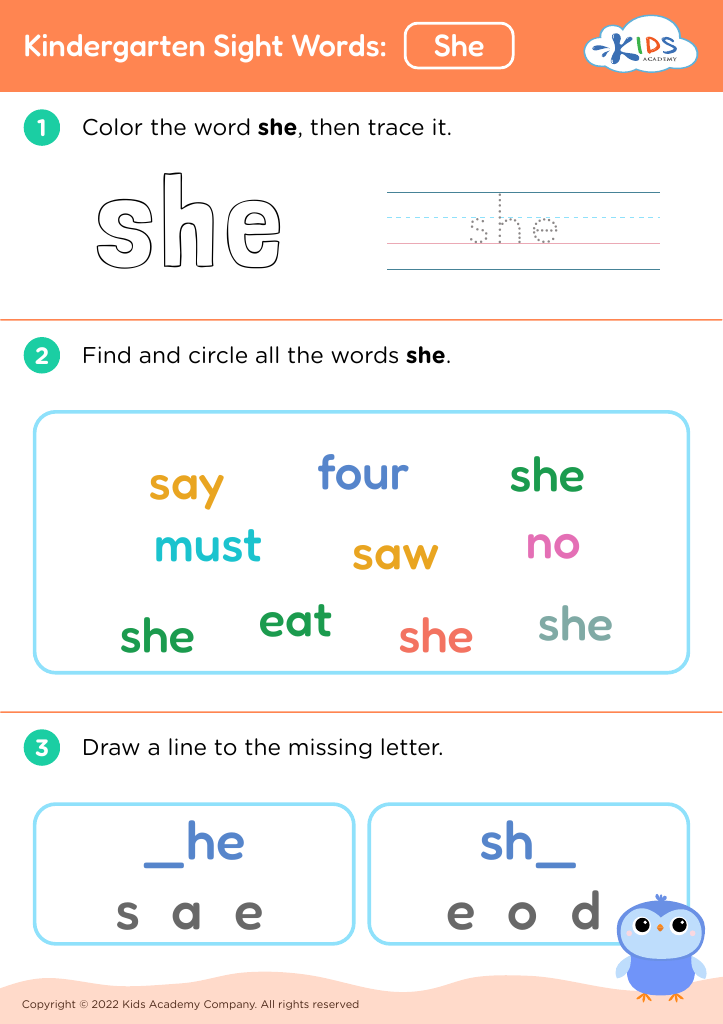Understanding symmetry Building Vocabulary Worksheets for 6-Year-Olds
3 filtered results
-
From - To
Explore the fascinating world of symmetry with our engaging vocabulary worksheets designed for 6-year-olds! These hands-on resources help young learners grasp the concept of symmetry through fun activities that combine art and language. Children will encounter key terms, enhance their vocabulary, and develop critical thinking skills while discovering symmetrical shapes and patterns. Phonics and imaginative visuals make learning enjoyable and effective. Perfect for classroom or home use, these worksheets encourage creativity and problem-solving, laying a strong foundation for future math and art lessons. Download now and watch your child's understanding of symmetry bloom through interactive learning!
Understanding symmetry and building vocabulary are essential components of a comprehensive education for 6-year-olds, and both are pivotal to their cognitive and linguistic development. Symmetry introduces children to fundamental concepts in mathematics, science, and art. By recognizing symmetrical patterns, children improve their spatial reasoning skills, which are crucial for advanced problem-solving and understanding geometric shapes in the future. Through hands-on activities, they can explore symmetry, fostering creativity and critical thinking.
Building vocabulary, on the other hand, enhances a child’s ability to communicate effectively and understand complex ideas. Expanding a young child’s vocabulary helps them articulate their thoughts, feelings, and ideas more clearly, promoting social interactions and emotional intelligence. It also lays the foundation for strong reading skills, as a rich vocabulary correlates with better comprehension and fluency.
When parents and teachers prioritize these areas, they create a supportive learning environment that encourages curiosity and exploration. They equip children with the tools needed for academic success and lifelong learning. By integrating symmetry and vocabulary building in fun, engaging ways, caregivers can boost confidence and instill a love for learning, setting children on a path to become thoughtful, articulate, and innovative individuals.


















.jpg)















